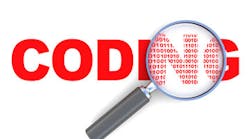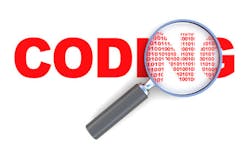Thursday Troubleshooter: Code 4910 or 1110, and is dental practice bordering on fraud?
Nearly everyone has problems and concerns on the job, and sometimes you're just too close to a situation to solve something yourself. Share your concerns with Team Troubleshooter, and the experts will examine the issues and provide guidance. Send questions to [email protected].
___________________________________________________________________________________________________
QUESTION: I have been with this practice for 15 years. Last year the original dentist sold the practice after more than 30 years. My questions are—should patients with long clinic crowns due to recession, with no pockets or bleeding on probing (BOP), be charged as 4910 or 1110? Is it ethical or necessary to perform scaling and root planing (SRP) on these patients in the absence of disease so that they can now be considered 4910?
ANSWER FROM PATTI DIGANGI, coauthor of the “DentalCodeology" series of books:
The dilemmas around this coding issue involve diagnosis, treatment, and ethics. The answer to nearly every coding question is, What is the diagnosis?
The unfortunate truth is that many practitioners have been taught case types and believe these are diagnostic categories. Types 1-4 are and always have been treatment categories, just as CDT codes are procedure codes, not insurance codes.
It appears from your question that some patients had gingival recession treated with crowns that covered those areas of recession. What we don’t have is the reason for the recession, and it can’t be determined after the fact. Treatment should be determined by the current periodontal condition.
The code D4910 only follows either surgical or nonsurgical periodontal therapy. If the records from the practice do not show any history of periodontal therapy, it does not meet the criteria for periodontal maintenance.
Dental professionals have an opportunity with the new D4346 gingival inflammation code to reexamine our thinking about periodontal disease. An analogy can be made that not recognizing and treating inflammation is like having high blood pressure and not recognizing or treating it until a stent is placed or a heart attack occurs.
Using the same analogy, in this case just because we see a “stent,” we can’t determine the diagnosis after the fact. Periodontal disease is not a bone loss condition; it covers the health of periodontium before and after clinical attachment loss.
What challenges our thinking is our long-time mantra—once perio, always perio. Following active periodontal treatment and the resolution of periodontal inflammation in periodontitis, the periodontal tissue is healthy but with a reduced connective tissue attachment and alveolar bone height. There is a diagnosis from the American Academy of Periodontology (AAP) called healthy with reduced periodontium with and without inflammation.*
The final part of your question about creating a diagnosis and treatment for the purpose of coverage is not only an ethical question, but there could be a case made for fraud. A professional is obligated to document a diagnosis and offer the risks, benefits, and alternatives for treatment.
The office is further obligated to use the code that most accurately describes the treatment provided. To change a code or use a different code for the purpose of increasing payment can be considered fraud. Fraud, whether by accident or ignorance, is still fraud.
The bottom line is, what is the accurate current periodontal diagnosis?
• More details are available in DentalCodeology: A Gingivitis Code Finally!
RECENT TROUBLESHOOTERS
Dental assistant refused raise promised when she earned her RDA
This office believes new code D4346 ‘won’t be covered anyway,’ so why bother?
Dentist seeks advice for managing his unruly staff
Don't be shy! If YOU have a tough issue in your dental office that you would like addressed, send it to [email protected] for the experts to answer. Remember, you'll be helping others who share the same issue. Responses will come from various dental consultants, as well as other experts in the areas of human resources, coding, front office management, and more. These folks will assist dental professionals with their various issues on DentistryIQ because they're very familiar with the tough challenges day-to-day practice can bring.
All inquiries will be answered anonymously each Thursday here on DIQ.
For the most current practice management headlines, click here.
For the most current dental headlines, click here.
About the Author
Team Troubleshooter
This column features questions from everyday people who work in dental practices, who have issues they would like addressed by the experts. It no longer runs regularly, but the questions sent in the past still apply to dental practices today. Search "Troubleshooter" on DentistryIQ to read more.

